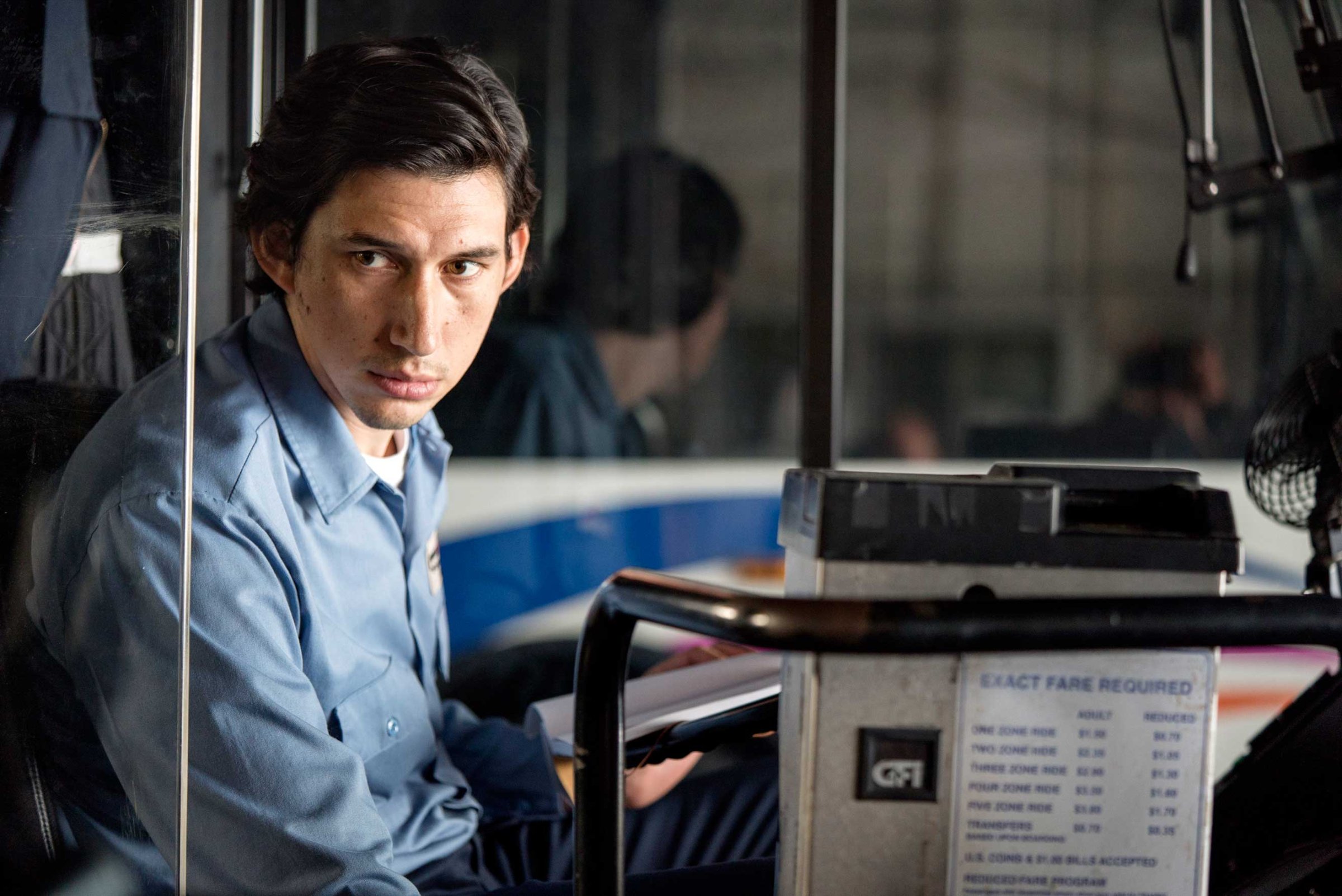
Jim Jarmusch’s Paterson–the director’s 13th film and also possibly his finest–is a joyous picture. But it’s also brushed with melancholic shadows that cling. Its jokes are of the gently whirring variety. That only adds to the picture’s haiku-like beauty. Adam Driver plays a bus driver whose job is to navigate the streets of Paterson, N.J. He also happens to be named Paterson, and he’s lived in the city all his life. In the spare slivers of his day, Paterson, quiet and thoughtful by nature, writes poetry. Anything can inspire him: a box of Ohio Blue Tip matches, his sense of the bus he drives pushing through air molecules, scraps of conversation he catches from his passengers. The latter don’t directly inform his poetry, but you get the sense they’re a subtle background for everything he thinks about and feels.
At the end of the day, he goes home to his wife Laura (Golshifteh Farahani, radiating Froot Loopy charm), whom he loves dearly, and to the couple’s crabby English bulldog, Marvin, whom he tolerates. Laura is as exuberant as Paterson is quiet. He’s barely stepped through the door before she’s showing off the curtains she’s just made (the couple’s small home is a riot of DIY home decor, mostly in the black-and-white scheme Laura loves), or prattling on about the cupcake business she’s going to start, or articulating her dream of becoming a country-western star. (All she needs to do is buy a guitar. And learn to play it.) But she adores her husband and his poetry. She urges him to share it with the world, even though he seems mostly to want to keep it for himself. Driver is turning out to be one of the finest actors of the moment, an understated star with a great, non-movie-star face.
Paterson is also a stunning-looking film, even though it was filmed in a city that many may not think of as beautiful. Jarmusch and his cinematographer, Frederick Elmes, capture this place in all its cracked-sidewalk glory. As Paterson guides his giant boat of a bus through the city’s streets, he passes Rent-a-Centers and Foot Lockers, places we don’t usually see in movies unless the filmmaker is trying to make a statement about “urban” life, with all the divisions those quotation marks imply.
Jarmusch isn’t making a big pronouncement about that, which is one of the reasons Paterson feels so fresh. It’s about more: the energy that keeps even an economically depressed city thrumming, the closeness but also the inherent loneliness of couplehood, the way the things we do in our spare time can come to define us. It’s about love and poetry and dreams. How you pour all of that into one movie is something of a mystery. But then, a good poem is always something of a mystery.
More Must-Reads from TIME
- Cybersecurity Experts Are Sounding the Alarm on DOGE
- Meet the 2025 Women of the Year
- The Harsh Truth About Disability Inclusion
- Why Do More Young Adults Have Cancer?
- Colman Domingo Leads With Radical Love
- How to Get Better at Doing Things Alone
- Michelle Zauner Stares Down the Darkness
Contact us at letters@time.com